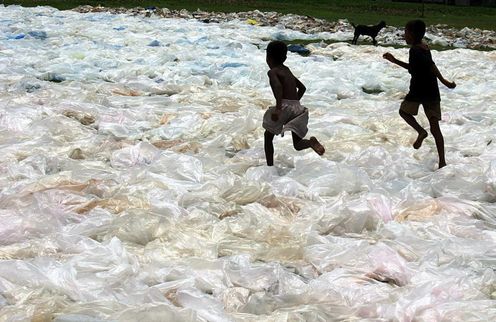
The election and victory of the BJP and its allies with Narendra Modi at the helm brought new hope to many segments of Indian society, including the health sector.
Health workers welcomed the appointment of a health professional – a specialist doctor – as health minister. It seemed to solve a long standing problem where neither the minister nor the secretaries were health professionals or had public health education, leaving important policy decisions in the hands of lay politicians and bureaucrats. But within a few months the minister was replaced, and it was not clear to the public why the change was made.
Notwithstanding this first glitch, the major health achievement of the Modi government has been the unprecedented commitment to a “clean India” or “Swachha Bharat”. Indian people and governments at all levels had neglected toilets, sanitation, hygiene and waste management so badly that it was causing major health problems, national shame, and an obstacle to tourism development, causing major economic loss to the nation.
After Mahatma Gandhi, Modi was the only major national leader who made cleaning of India a major priority. His gesture of personally cleaning the streets of Delhi gave a very powerful message to the country. Many leaders followed his example. They may have done it for the photo-ops and media coverage – but it sent home the urgency of the need for a clean-up to the millions of people who saw it on TV.
Four million toilets
In response, states, local city governments and companies pledged to build thousands of individual toilets and make cleanliness a higher priority in their programs. In one year some four million toilets were built. Plans are underway to improve solid waste management and install and properly maintain sewage treatment plants, which were not there in many cities and towns in India. Given sanitation is a multi-sectoral issue, it is a very welcome step that each ministry has been told to work in this direction.
The second positive development has been the cleaning of India’s rivers – with the river Ganga being the first priority. Despite Indians treating rivers as very pious, they have showed no qualms in polluting them, including the river Ganga. Hopefully this will change – if it does it will be a major achievement of the Modi government for improving health.
As has happened in past, successive health ministers have announced many new health schemes. Some of these include a revised immunisation program with more vaccines, the provision of very low-cost life insurance and accident insurance programs, and the transfer of the national hospitalisation insurance program (RSBY) for the poor from the labour ministry to the health ministry.
There has also been a major emphasis on protecting girls at a national level, which was Modi’s pet social campaign when he was chief minister of Gujarat. There has been talk about a health assurance program and free medicine program, but it will take time for these to hit the ground. Special emphasis has been given to Ayurveda and other traditional systems of medicine by the new government.
The government’s new draft health policy, released in December, is currently open for comment and feedback. It offers many positives including increasing funding for health, and improving the public health system. Hopefully with wider consultations the policy will be quickly finalised.
More to be done
Meanwhile, the central health budget has been somewhat decreased, indicating a lack of funds and political willingness to put more central money into the health system. Central government under the recommendation of the recent finance commission has agreed to give states more un-tied funds for development, which may compensate for the cut in social sector funding.
The government has followed a process of decentralisation, with health matters left to the states and a limited role for central government. This could backfire if states already doing well on health and with good governance end up spending more of the devolved money on health, while poorer and less well governed states don’t use the flexible money for health and social sectors – directly impacting their people.
India has not developed a public health service staffed by well qualified public health professionals, nor a hospital management service staffed by qualified hospital managers. These have been talked about in the 12th five-year plan but rapid steps are needed to implement them. Without them, we cannot build an affordable, equitable and universally accessible health system with a strong focus on preventive, promotive and primary health care. If it is not done, India will remain a hot bed of preventable disease, with islands of excellence of private medical care affordable to very few.
Read the other pieces in our Modi one year on series here.
Dileep Mavalankar does not work for, consult to, own shares in or receive funding from any company or organisation that would benefit from this article, and has no relevant affiliations.
